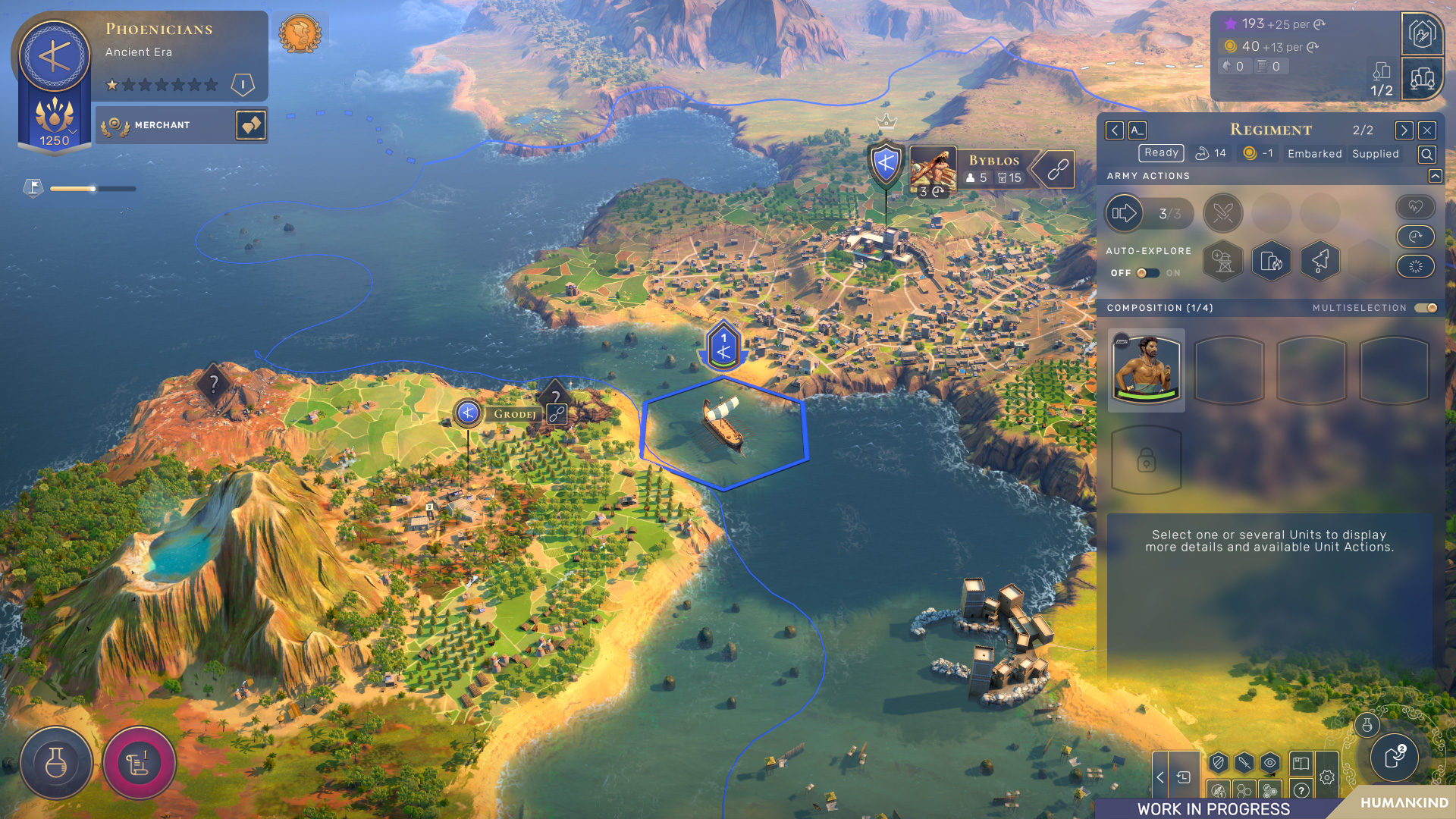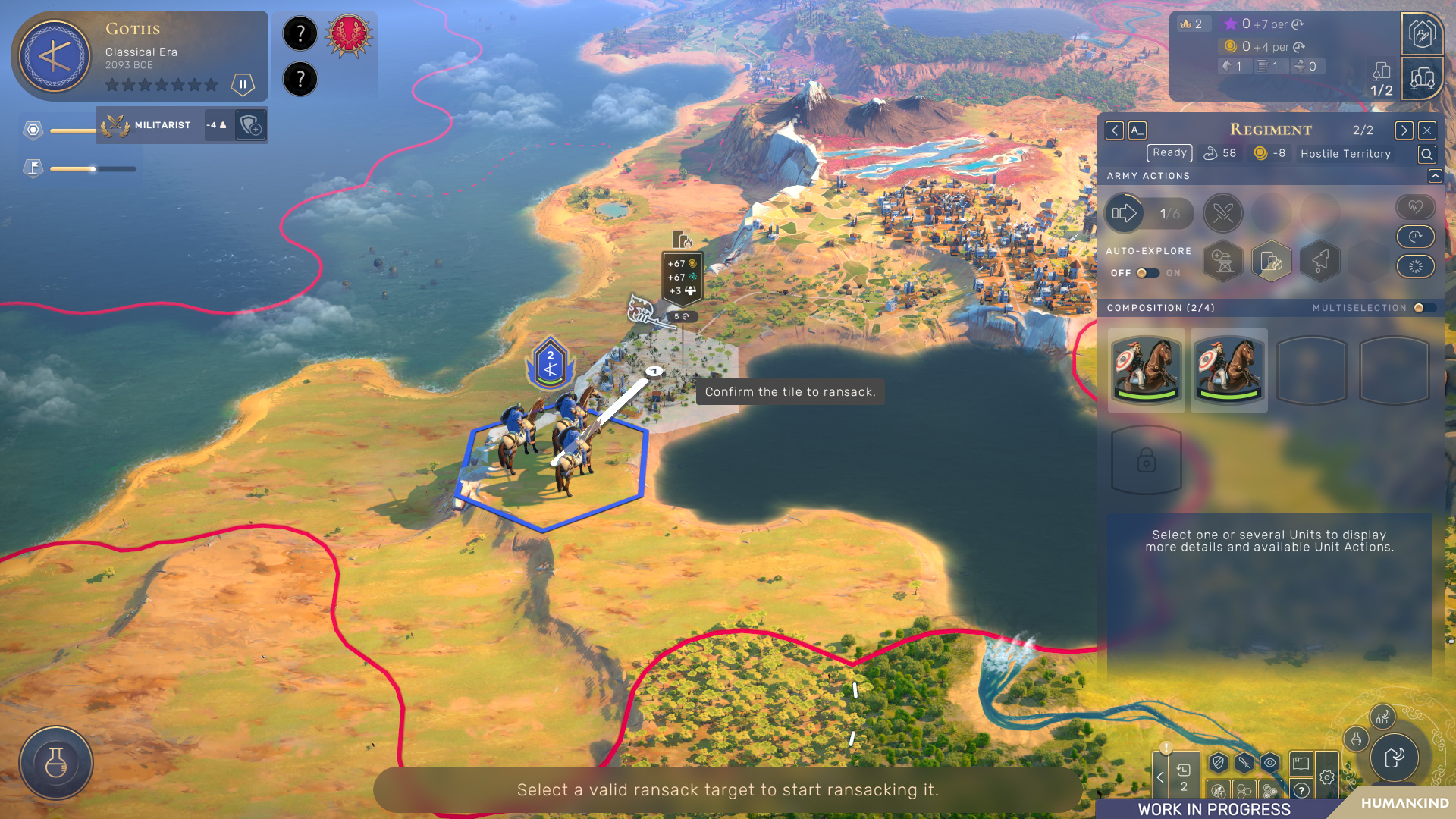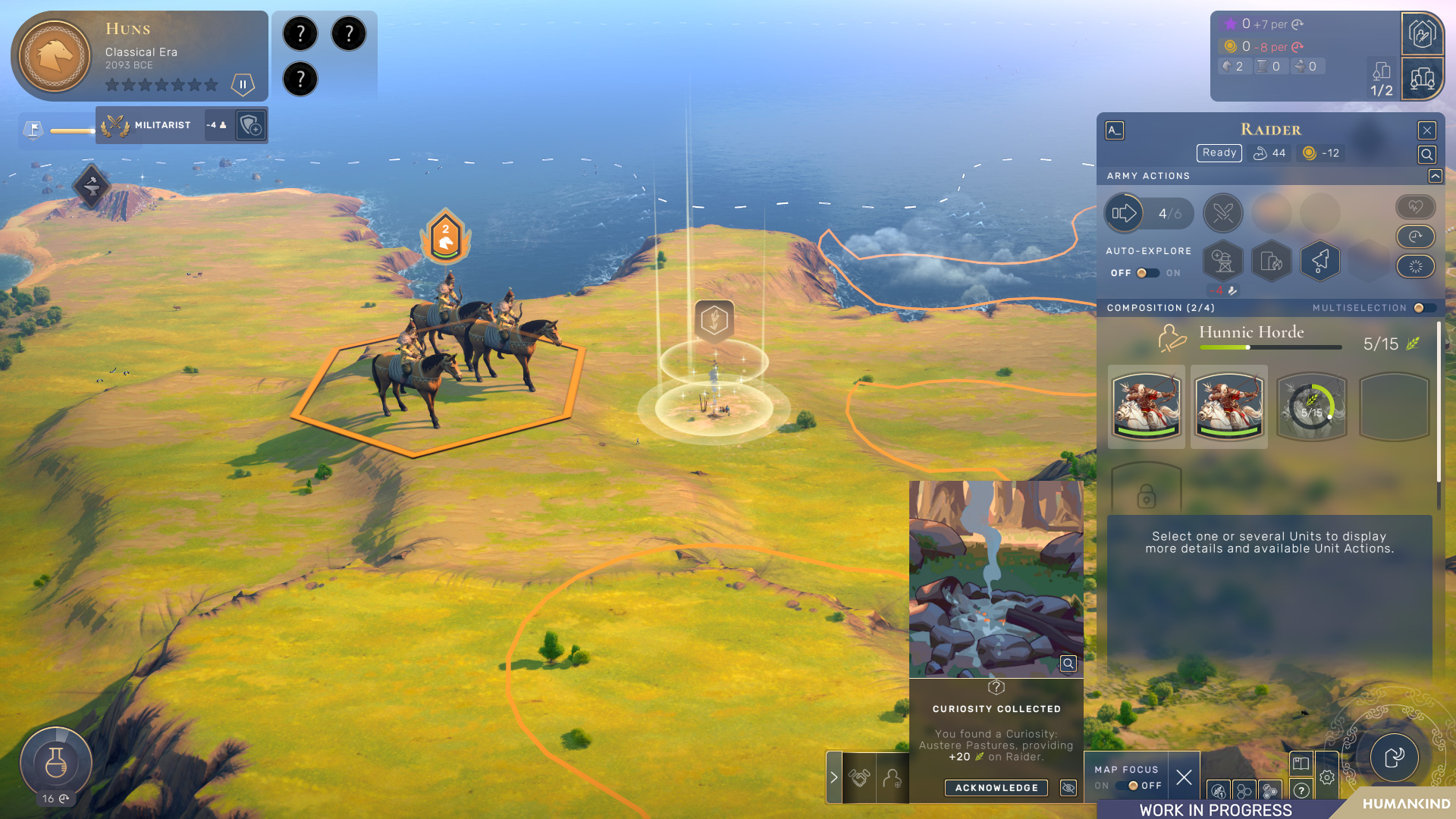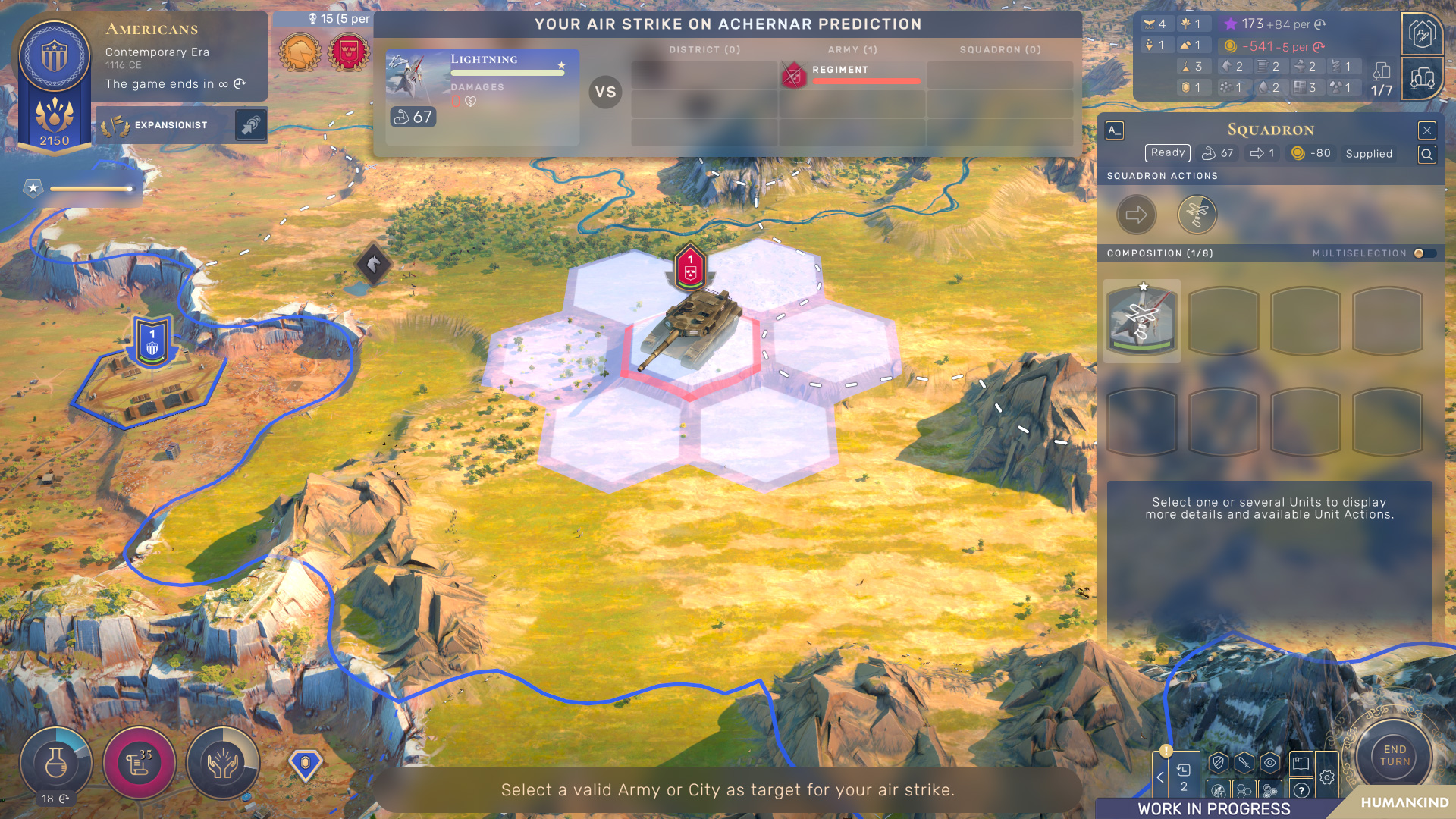@Catoninetales_Amplitude has posted an overview over the next beta over at Games2gether. They are working on the balancing, and various civs will get a re-work.
All details at Games2gether, or below:
The Ibn Battuta Update will arrive soon, but we have one last sneak peek for you. Today we want to take a look at cultures and balancing.
While we made some general balance changes in this update, like making vassalization easier for famed empires and making most influence-based actions cheaper in the mid and late game, our focus was on the cultures. We wanted to give a boost to some of the weaker or less interesting cultures to offer more compelling choices, though we also changed some of the cultures that were just too powerful.
About two dozen cultures have been tweaked in some way, and there’s not enough room in this blog to cover all of them, so the best way to learn what has changed is to give it a spin yourself in the Ibn Battuta beta available for Windows on Steam now! Just opt into the ibnbattuta_beta branch in the game’s properties.
If you’re unsure about trying the beta, or just want to know a little more before jumping in, you can read about four of the cultures that have received major changes below, or check out a more complete list of changes on the forum.
Phoenicians
The Phoenicians were a naval power who founded cities along the coasts of the Mediterranean and were influential traders. Unfortunately, many of you found that this legacy was not represented well in Humankind. The Bireme may have let you explore the waters more freely than other cultures, but your outposts and thus your empire were still landlocked. While your boats zipped off to far away lands, your scouts would trudge across difficult terrain...
Not anymore, though! We’ve told your land-lubbing soldiers to get on the boat and get out there to claim some land: Biremes are now transport ships that unlock with the Fishing technology, allowing you to easily expand along coastlines and maybe even snatch a few inviting islands. If you need better protection for your explorers, you can now also build the Pentekonter like other cultures, but your Legacy Trait will give you a slight edge.

Goths
What if you get sea-sick, or are just not a good negotiator? Don’t worry, you can still benefit from the riches and knowledge of your neighbors. You just have to take a slightly more... direct approach to it, and the Goths got your back.
The Goths haven’t exactly been a popular pick so far. While the Gothic Cavalry is decently powerful, especially on the charge, neither their Legacy Trait nor their Emblematic Quarter seemed particularly appealing to players, especially compared to the economic bonuses of other cultures. We knew we had to offer the Goths some economic benefits, but we wanted to stick with the ransacking theme of their Legacy Trait, so instead of ransacking faster you will now gain some Science from ransacking. The Tumulus will further boost this less-than-friendly knowledge sharing, and benefit from some tweaks made to the religious tenets (more info on that below), while no longer reducing your stability.

Mounted Nomads: Huns and Mongols
Speaking of powerful mounted forces, both the Huns and the Mongols have gotten some changes and small buffs.
On their own, their emblematic units were in a good spot in combat; difficult to catch but not overly powerful in a fight. Their tendency to multiply and raise new troops after killing yours caused some problems, though. You might enjoy fending off a couple of horse archers the first time around, but weathering an endless horde of them in a large battle or prolonged war could be tedious, if not frustrating. So, we've reined in these seemingly necromantic practices: Mounted Nomads will no longer grow from defeating enemy units. Instead, you can find special "Pasture" curiosities that will provide some growth to your army, and you can still grow by pillaging enemy districts.
Since many players also felt that these two cultures were too similar, we’ve added some additional bonuses to their legacy traits: The Huns will now gain a small amount of science for each of their units in hostile territory, encouraging you to be aggressive even when you are not out to conquer. The Mongols, on the other hand, can make some extra money from tributaries, as vassalizing other empires will be easier for them.

Americans
Let’s skip ahead a couple of centuries to the Contemporary Era and take a look at the Americans. The Defense Agency has frequently been criticized as one of the weakest Emblematic Quarters in the Contemporary Era, if not the game. Between its synergy to garrisons and its very localized effect on combat, many players felt it offered very little benefit, with its cost only growing as you tried to maximize its effects.
Thanks to some internal restructuring, the Defense Agency is ready to be a boon to your economy, and a boom to your military. Not only does it no longer reduce your stability and gain bigger synergies with garrisons, it now also counts as a Market and Commons Quarter to benefit from additional synergies. More importantly, it now supplies your troops with shiny new high-tech weapons. Explosive ones, mostly: Every Defense Agency in your empire will increase the strength of your bombardment abilities, whether it's your army, navy, or air force.

Religious Districts and Tenets
So, what about those tenet tweaks we mentioned?
When reading the feedback, we noticed that many cultures with a religious Emblematic Quarter tended to be among the less popular choices. Faith was just not considered a strong yield by many players, as they largely relied on Holy Sites and Cultural Wonders to spread their religion, and they preferred more direct economic benefits. To help these cultures be more appealing to players, we are adding some economic benefits to them through the tenets: Each non-militaristic tenet will now provide a small resource yield on Religious Districts (including Holy Sites). We've also fixed a problem where these Religious Districts where not properly marked in their tooltip, so they will be easier to identify now. They might not rival dedicated districts, but each religious district should now add to your economy based on your religion, and we hope a religious playthrough will now be more interesting.
We hope you’ll enjoy the new culture balancing and the opportunities it should open!
All details at Games2gether, or below:
Spoiler :
The Ibn Battuta Update will arrive soon, but we have one last sneak peek for you. Today we want to take a look at cultures and balancing.
While we made some general balance changes in this update, like making vassalization easier for famed empires and making most influence-based actions cheaper in the mid and late game, our focus was on the cultures. We wanted to give a boost to some of the weaker or less interesting cultures to offer more compelling choices, though we also changed some of the cultures that were just too powerful.
About two dozen cultures have been tweaked in some way, and there’s not enough room in this blog to cover all of them, so the best way to learn what has changed is to give it a spin yourself in the Ibn Battuta beta available for Windows on Steam now! Just opt into the ibnbattuta_beta branch in the game’s properties.
If you’re unsure about trying the beta, or just want to know a little more before jumping in, you can read about four of the cultures that have received major changes below, or check out a more complete list of changes on the forum.
Phoenicians
The Phoenicians were a naval power who founded cities along the coasts of the Mediterranean and were influential traders. Unfortunately, many of you found that this legacy was not represented well in Humankind. The Bireme may have let you explore the waters more freely than other cultures, but your outposts and thus your empire were still landlocked. While your boats zipped off to far away lands, your scouts would trudge across difficult terrain...
Not anymore, though! We’ve told your land-lubbing soldiers to get on the boat and get out there to claim some land: Biremes are now transport ships that unlock with the Fishing technology, allowing you to easily expand along coastlines and maybe even snatch a few inviting islands. If you need better protection for your explorers, you can now also build the Pentekonter like other cultures, but your Legacy Trait will give you a slight edge.

Goths
What if you get sea-sick, or are just not a good negotiator? Don’t worry, you can still benefit from the riches and knowledge of your neighbors. You just have to take a slightly more... direct approach to it, and the Goths got your back.
The Goths haven’t exactly been a popular pick so far. While the Gothic Cavalry is decently powerful, especially on the charge, neither their Legacy Trait nor their Emblematic Quarter seemed particularly appealing to players, especially compared to the economic bonuses of other cultures. We knew we had to offer the Goths some economic benefits, but we wanted to stick with the ransacking theme of their Legacy Trait, so instead of ransacking faster you will now gain some Science from ransacking. The Tumulus will further boost this less-than-friendly knowledge sharing, and benefit from some tweaks made to the religious tenets (more info on that below), while no longer reducing your stability.

Mounted Nomads: Huns and Mongols
Speaking of powerful mounted forces, both the Huns and the Mongols have gotten some changes and small buffs.
On their own, their emblematic units were in a good spot in combat; difficult to catch but not overly powerful in a fight. Their tendency to multiply and raise new troops after killing yours caused some problems, though. You might enjoy fending off a couple of horse archers the first time around, but weathering an endless horde of them in a large battle or prolonged war could be tedious, if not frustrating. So, we've reined in these seemingly necromantic practices: Mounted Nomads will no longer grow from defeating enemy units. Instead, you can find special "Pasture" curiosities that will provide some growth to your army, and you can still grow by pillaging enemy districts.
Since many players also felt that these two cultures were too similar, we’ve added some additional bonuses to their legacy traits: The Huns will now gain a small amount of science for each of their units in hostile territory, encouraging you to be aggressive even when you are not out to conquer. The Mongols, on the other hand, can make some extra money from tributaries, as vassalizing other empires will be easier for them.

Americans
Let’s skip ahead a couple of centuries to the Contemporary Era and take a look at the Americans. The Defense Agency has frequently been criticized as one of the weakest Emblematic Quarters in the Contemporary Era, if not the game. Between its synergy to garrisons and its very localized effect on combat, many players felt it offered very little benefit, with its cost only growing as you tried to maximize its effects.
Thanks to some internal restructuring, the Defense Agency is ready to be a boon to your economy, and a boom to your military. Not only does it no longer reduce your stability and gain bigger synergies with garrisons, it now also counts as a Market and Commons Quarter to benefit from additional synergies. More importantly, it now supplies your troops with shiny new high-tech weapons. Explosive ones, mostly: Every Defense Agency in your empire will increase the strength of your bombardment abilities, whether it's your army, navy, or air force.

Religious Districts and Tenets
So, what about those tenet tweaks we mentioned?
When reading the feedback, we noticed that many cultures with a religious Emblematic Quarter tended to be among the less popular choices. Faith was just not considered a strong yield by many players, as they largely relied on Holy Sites and Cultural Wonders to spread their religion, and they preferred more direct economic benefits. To help these cultures be more appealing to players, we are adding some economic benefits to them through the tenets: Each non-militaristic tenet will now provide a small resource yield on Religious Districts (including Holy Sites). We've also fixed a problem where these Religious Districts where not properly marked in their tooltip, so they will be easier to identify now. They might not rival dedicated districts, but each religious district should now add to your economy based on your religion, and we hope a religious playthrough will now be more interesting.
We hope you’ll enjoy the new culture balancing and the opportunities it should open!



